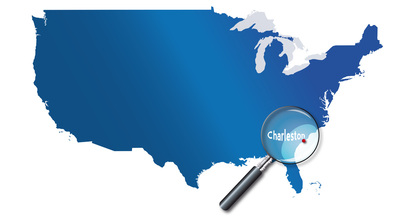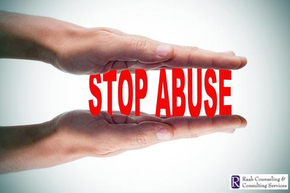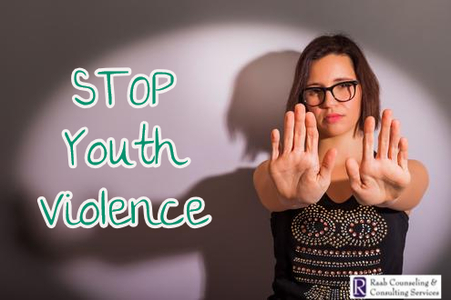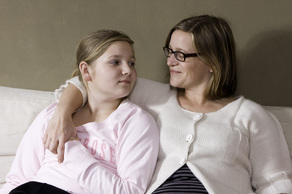 Map of U.S. with Magnifying Glass over Charleston from Dollar Photo Club Map of U.S. with Magnifying Glass over Charleston from Dollar Photo Club In light of the tragic shooting deaths in Charleston last night, I’ve been thinking a lot… ... about race, about death, about fear, about prejudice, and about hate. The thought that keeps resurfacing: Why can’t we, as humans, offer to others basic human respect? We are all living, breathing and feeling beings. We all have strengths and weaknesses. We all have people we love and people who love us. Why is it so hard to give others respect simply because they are human, even if they look, love or act differently than us? I recognize that this is my ideological social work self posing these questions. It also comes from the brain of a white woman. Maybe it isn’t helpful to the overall debate that is certain to be fueled by this incident. I don’t know. What I do know is that I cannot stop thinking about the lack of basic human respect that seems to permeate our society and our world. I also know we can do better by others if we make it a priority. My heart goes out to everyone impacted by the shootings in Charleston. I hope for you everything you need to heal and rebuild from this tragedy. I also promise to do everything in my power to help create a society where all humans are respected. Period. I’d love to hear your thoughts. Please leave your comments below. Please note that any hateful comments will be promptly removed. Let’s keep this as a place for safe discourse. Bethany Raab is a Licensed Clinical Social Worker in Denver, Colorado.
She is dedicated to helping teens and families be happy and healthy!  My thoughts on the Duggar family and teens who sexually abuse By now, I’m sure most of you have heard about the Duggar family and the oldest son, Josh’s inappropriate sexual behavior as a teen. I’ve been thinking a great deal about this situation and trying to reserve judgement the best I can as I am not privy to intimate details of the situation. However, I feel compelled to say a few words on the subject. For those of you who are unaware, one of my specialty areas in my therapy practice is working with teenagers who have committed sexual offenses. I have been doing this work for more than five years and have received extensive training in this area. Working with these teens is one of my great passions and an area of therapy that I truly love. I am also passionate about working with people, teens and adults alike, who have been victims of sexual abuse. Often, these two areas of practice intersect. During my nine year social work career and five years of helping teens address inappropriate sexual behaviors I’ve learned countless lessons. Here are four that stand out in light of the Duggar family situation. 1) Sexual abuse is wrong and it is illegal. Sounds obvious, but it is a point worth making. Using statements such as “kids will be kids,” “boys will be boys,” or “they were just playing doctor” is dangerous. These sentiments justify inappropriate behavior and undermine the impact sexual abuse has on its victims. 2) Keeping sexual abuse a secret is harmful to victims and the person perpetrating the abuse. Not only are both parties unable to receive help, but it perpetuates the idea that inappropriate sexual behavior is acceptable in our society. 3) Sexual acting out as a teen does not automatically make you a pedophile. A vast majority of teens I see in treatment who have sexually abused younger children are not sexually attracted to younger children. Sexual acting out by teens is driven by a number of factors including, but not limited to, experiencing sexual or physical abuse themselves, isolation, poor social skills and difficulty connecting with their peers. 4) Therapy works. The type of therapy I practice is called offense specific therapy. It has been specifically developed to help teens who have committed sexual offenses learn about why they committed their offense, help them learn healthy relationship skills and reduce their risk to sexually re-offend. Various studies show that between 87-93% of juveniles who complete this treatment successfully will NOT go on to sexually re-offend. With all of this said, I really don’t know what to tell you about the Duggar family situation. I certainly do not have enough information about what happened to insinuate that I am an expert on the situation. However, I hold firmly to my belief that sexual abuse is wrong and harmful. I also believe that both the victim and the perpetrator in any instance of sexual abuse are deserving of treatment to help them cope with what occurred. Thanks for reading! Please do not hesitate to contact me with comments or questions on this topic. I’d love to hear from you! Bethany Raab is a Licensed Clinical Social Worker in Denver, Colorado.
She is dedicated to helping teens and families be happy and healthy!  One in four American students will be affected by youth violence this year. (Students Against Violence Everywhere, SAVE) Youth violence includes bullying, school violence, criminal acts, gang violence, teen dating violence and more. These issues can have an immense impact on victims. Teens who have been hurt may respond in a variety of ways including (but not limited to) anger outbursts, depression, anxiety or self-harming behaviors. Now for some good news! The National Criminal Justice Reference Service reports that teen violence has decreased significantly in the last 20 years. This is the result of a lot of hard work by teens, parents, schools, law enforcement and various government and private agencies. While this is fantastic, it does not mean the problem of youth violence has been solved. There is still more work to be done. Wondering how you can help? Here are 5 ways you can help support the anti-youth violence message at home:
Now is a great time to give these a try in honor of National Youth Violence Prevention Week (March 23-27, 2015). Even if you miss the week celebration, there is never a bad time to talk to your kids about youth violence. Bethany Raab is a Licensed Clinical Social Worker in Denver, Colorado.
She is passionate about helping teens and families be happy and healthy!
As an extra, here is an excellent workbook from the Love is Not Abuse Coalition. It will help you talk about dating violence with your teens. It can also be used in conversations with younger children who are not yet dating.
Bethany Raab is a Licensed Clinical Social Worker in Denver, Colorado.
She is passionate about helping teens and families be happy and healthy! |
Welcome!
Every blog post you see on this page is written especially for teens and their parents! Like it? Pin it!
Follow me!
Categories
All
|
||||||||


 RSS Feed
RSS Feed